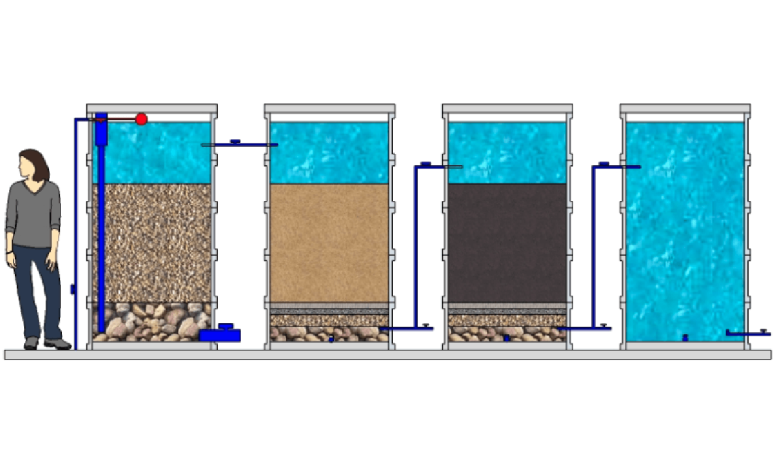
The quest for efficient and sustainable water purification methods has led researchers to explore biochar—a carbon-rich material derived from biomass—as a promising solution. Recent advancements in biochar-based water filtration systems have demonstrated significant potential in removing a variety of pollutants from water sources.
Biochar’s Mechanism in Water Filtration
Biochar’s effectiveness in water treatment is attributed to its unique properties:
- High Surface Area and Porosity: These characteristics facilitate the adsorption of contaminants, including heavy metals and organic pollutants.
- Surface Functional Groups: The presence of various functional groups enhances biochar’s interaction with different pollutants, improving removal efficiency.
Recent Advancements and Applications
- Removal of Organic Dyes Modified biochar has shown high efficiency in adsorbing synthetic organic dyes from wastewater. These dyes, resistant to biodegradation, pose significant health risks, including carcinogenicity. Physicochemical modifications of biochar enhance its adsorption capacity, making it a cost-effective and eco-friendly solution for dye-contaminated wastewater.
- Decentralized Water Treatment in Southeast Asia In rural Southeast Asia, biochar has been utilized in decentralized, small- and intermediate-scale water treatment systems. A how-to handbook has been published to guide the production of enhanced water filter biochar, aiming to mitigate health risks from drinking water contaminated by agricultural chemicals and industrial pollutants.
- Integration in High-Rate Filtration Systems Research has evaluated the efficiency of biochar derived from eucalyptus and bamboo biomass as filter materials in drinking water treatment. The studies found that biochar filters achieved significant removal efficiencies for turbidity, color, heavy metals, and coliform bacteria, outperforming conventional filter materials like sand and anthracite.
- Removal of Pharmaceuticals from Waterways Biochar has been investigated for its ability to remove pharmaceutical contaminants from water sources. Its ease of production using various pyrolysis systems makes it adaptable for both small households and large wastewater treatment plants, offering a decentralized solution for communities lacking proper water treatment technologies.
Future Prospects
The versatility and adaptability of biochar-based filtration systems present a sustainable approach to water purification. Ongoing research and technological advancements are expected to further enhance the efficiency and applicability of biochar in water treatment, contributing to global efforts in ensuring access to clean and safe water.



